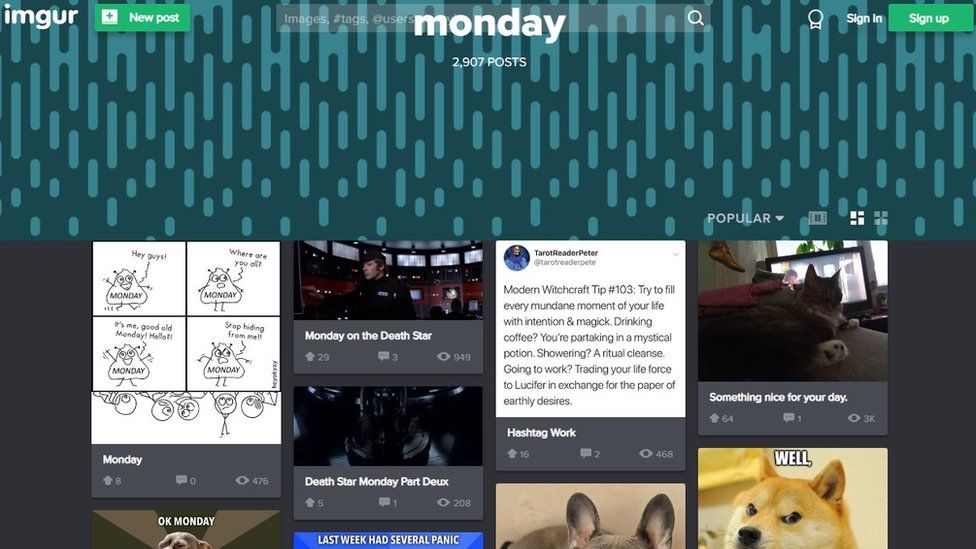Virgin Media probes why it blocked giant Gif site Imgur
- Published

Virgin Media is investigating why it mistakenly blocked customers from visiting Imgur, a platform used to share humorous photos and Gifs.
The UK broadband provider's users had been shown an alert saying access was denied because of suspected "indecent images of children" on the site.
Further efforts to see the material, it added, could be "a criminal offence".
Virgin has a policy of banning suspect web pages but said it would not normally ban a service outright.
"We're still investigating what happened but it appears to have been a technical issue with our Web Blocker system used to carry out requests from the Internet Watch Foundation (IWF)," a spokesman told BBC News, referring to a charity dedicated to removing child sexual abuse imagery from the internet.
"Virgin Media will only block URLs [uniform resource locators - also known as web addresses] if compelled to do so through a court order or through the IWF.
"As matter of course, Virgin Media does not carry out domain-level blocking on sites reported to us by the IWF."
Imgur is one of the UK's top 25 most popular sites, according to Amazon's web traffic analytics service, Alexa.
As well as providing a place to find and share entertaining photographs, illustrations and short videos in its own right, it also serves as a popular source of viral imagery for other social networks, including Instagram, Reddit and Twitter.
Imgur's own terms of service specifically say that child abuse pictures are banned, among other illegal content, and that any such posts will be removed if detected.
The Internet Watch Foundation has stressed that it was not responsible for the glitch.
"We never condone over-blocking," said the organisation's deputy chief executive, Fred Langford.
"We provide a list of 'live' child sexual abuse URLs to internet service providers and filterers, who block them at URL level to help stop the re-victimisation of sexual abuse victims.
"It's incredibly frustrating for us, and other companies, when services are incorrectly blocked."